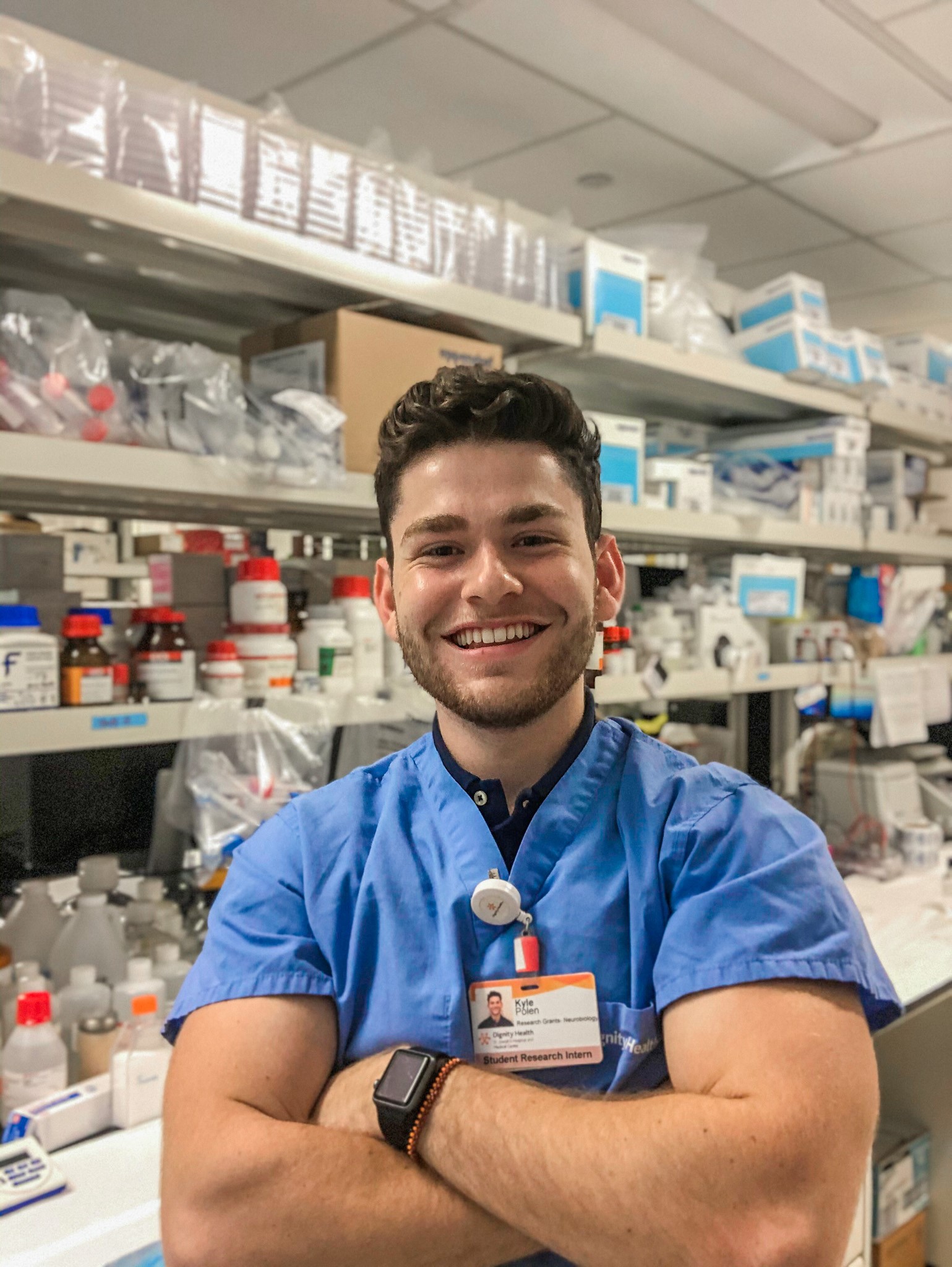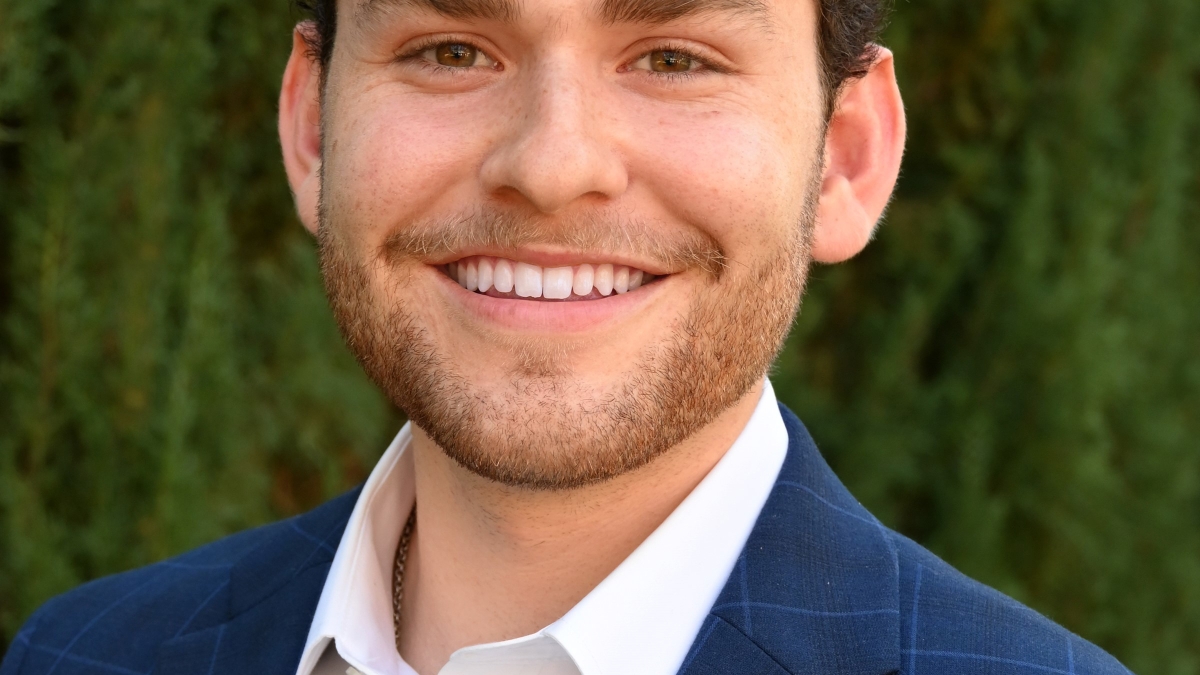Editor's note: This story is part of a series of profiles of notable spring 2023 graduates.
Arizona native Kyle Polen came to Arizona State University as a Flinn Scholar. Four years later, Polen is graduating this spring with dual degrees, a Bachelor of Science in biochemistry from the School of Molecular Sciences and a Bachelor of Arts in global health from the School of Human Evolution and Social Change.
Polen is also a student at Barrett, The Honors College, and has been accepted to 13 medical schools. He said his passion for science and medicine started at Chaparral High School and grew while attending ASU.
Polen wants to pursue a career as a physician with a global presence focusing on the science and humanistic aspects of medicine. His interest in global health was ignited by his experiences in Sister Cities exchange programs.
“These experiences really helped me develop a sense of cultural humility and with ASU’s global health program, I knew it would give me a strong foundation to continue studying the intersection of culture and community health,” Polen said. “Global health was a great choice because it supplemented my traditional pre-medical coursework to provide a more holistic understanding of the health-care landscape.
“The sciences gave me a microscopic understanding of disease, but global health gave me an understanding of the macroscopic factors that contribute to social determinants of health.”
Polen received the Distinguished Merit Award from the School of Molecular Sciences. The award is presented to a graduating senior in recognition of an outstanding academic record in a biochemistry degree.
Polen talked with ASU News about his college experiences.
Note: Answers have been edited for length and clarity.
Question: What was your “aha” moment when you realized you wanted to study the fields you majored in?
Answer: My first opportunity to volunteer in a hospital in high school was really what opened my eyes to the ways in which science and culture intersect. It introduced me to a diverse patient population and got me thinking about how I could apply the biochemistry I wanted to study to help the patients I was seeing. Ever since, majoring in global health and biochemistry has benefited me in a variety of clinical settings and helped me understand scientific research through a new lens.
Q: What’s something you learned while at ASU — in the classroom or otherwise — that surprised you or changed your perspective?
A: I’ve learned so much at ASU, so it is hard for me to pick just one thing. But what stands out to me is the importance of collaboration with people of different backgrounds. Group projects in Professor Daniel Hruschka’s medical anthropology course and small honors classes really got me excited about the future possibilities of working in teams, which I think is an excellent skill regardless of the field in which you work.
Q: Why did you choose ASU?
A: I chose ASU for the perfect combination of a large public research institution paired with the community of a smaller honors college. To me, this felt like a great balance because I was able to pursue a variety of opportunities without feeling overwhelmed in person. ASU does a great job of making a large university feel like a tight-knit community, and paired with my selection as a Flinn Scholar, staying in-state and attending ASU was a great choice.
Q: Which professor taught you the most important lesson while at ASU?
A: I have endless gratitude for all of my professors, but I’m especially grateful for retired Dean Mark Jacobs from Barrett, The Honors College. He was a great mentor to me outside of the traditional classroom who showed me the importance of keeping an open mind on one’s career journey in the sciences.
Q: What’s the best piece of advice you would give to students?
A: The person you are today is not defined by who you were yesterday, last semester, or even last year. Even though college moves fast, there is so much opportunity worth taking advantage of, especially at ASU, so don’t hesitate to try new things. This of course applies to anyone going through a tough time, but it also applies to people experiencing a lot of success. Seize each day as it comes!
Q: What was your favorite spot on campus, whether for studying, meeting friends or just thinking about life?
A: I love the Greek Leadership Village. There are great outdoor common areas and study spots, and I really enjoyed living with my fraternity. Areas of campus like the village, much like Barrett, are what makes ASU feel like a tight-knit community.
Q: If someone gave you $40 million to solve one problem on our planet, what would you tackle?
A: There are so many issues in need of funding, but I would choose to invest in education in underserved areas of the world. Providing opportunities for students to develop technical skills, learn about the current state of our climate, gain an understanding of healthy habits, and learn personal finance will help unify and uplift the world. Through education, the impact of a happy and healthy lifestyle can be multiplied for generations.
Q: Were you involved in any clubs, sports or other organizations during your time at ASU?
A: Over my four years at ASU, I was involved at Barrow Neurological Institute as a student researcher, Sister Cities International’s Scottsdale Chapter, Undergraduate Student Government, Sigma Nu leadership fraternity, assistant teaching at the honors college and the Student Health Advisory Board, among others.

Kyle Polen at a laboratory at Barrow Neurological Institute, where he studies therapeutic targets to stabilize intracranial aneurysms. He began working there as a summer intern before being hired as a part-time research technician. Photo courtesy Kyle Polen
More Science and technology

Applied Materials invests in ASU to advance technology for a brighter future
For nearly 60 years, global giant Applied Materials has been hard at work engineering technology that continues to change how…

Meet ASU engineering students who are improving health care, computing and more
Furthering knowledge of water resource management, increasing the efficiency of manufacturing point-of-care health diagnostic…

Turning up the light: Plants, semiconductors and fuel production
What can plants and semiconductors teach us about fuel production?ASU's Gary Moore hopes to find out.With the aim of learning how…


